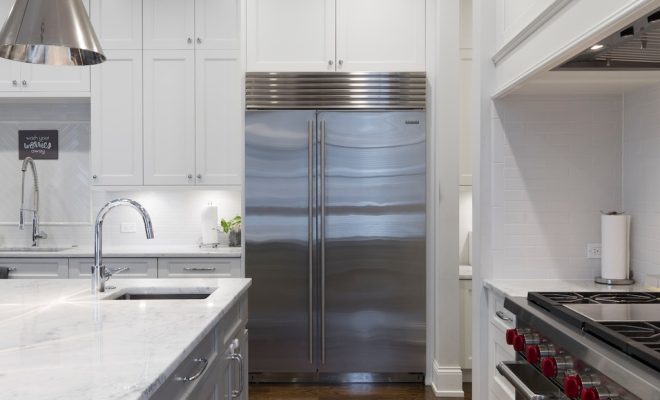Tips To Extend the Life of Your Refrigerator

Your trusty fridge is the unsung hero, keeping your food fresh and drinks chilled daily. Like any appliance, it needs a little TLC to perform at its best.
We’ve listed some easy tips to extend its lifespan and help you save money on repairs and energy bills. From simple maintenance routines to clever organization hacks, get ready to unlock the secrets of a longer-lasting and efficient refrigerator. Let’s get started!
Location Matters
The placement of your refrigerator can significantly impact its efficiency and lifespan. Keep it away from heat sources like ovens and direct sunlight. These can force the refrigerator to work harder to maintain the desired temperature. Also, ensure there is enough space between the refrigerator and the wall to allow for proper air circulation.
Clean the Coils
The condenser coils at the back or bottom of your fridge dissipate heat, helping it run efficiently. Over time, dust and debris can accumulate on these coils, hindering their function. Regularly clean the coils with a vacuum cleaner or a brush to keep them free from dirt, allowing your refrigerator to operate optimally.
Mindful Door Usage
Frequent opening and closing of the refrigerator door can strain its compressor. Teach family members to be mindful when accessing the fridge, avoiding prolonged open-door browsing. Also, check the door seals regularly to ensure they are clean and intact. Damaged seals can cause cool air leakage, leading to increased energy consumption.
Temperature Settings
Setting the refrigerator temperature too low is unnecessary and can lead to excessive energy usage. Keep your refrigerator’s temperature between 37°F and 40°F (3°C to 5°C) and the freezer at 0°F (-18°C) for optimal freshness and efficiency.
Keep It Well-Stocked
A well-stocked refrigerator retains cold air more effectively than an empty one. However, avoid overfilling it, as overcrowding obstructs proper air circulation and reduces cooling efficiency.
Regular Defrosting
If you own a manual defrost refrigerator, it must be defrosted regularly. Ice buildup decreases the available storage space and forces the refrigerator to work harder to maintain the desired temperature. Keep an eye on the frost buildup and defrost when the ice is about a quarter-inch thick.
Avoid Hot Foods
Placing hot or warm food directly into the refrigerator can elevate its internal temperature and strain the compressor. Let hot dishes cool down at room temperature before storing them in the fridge.






